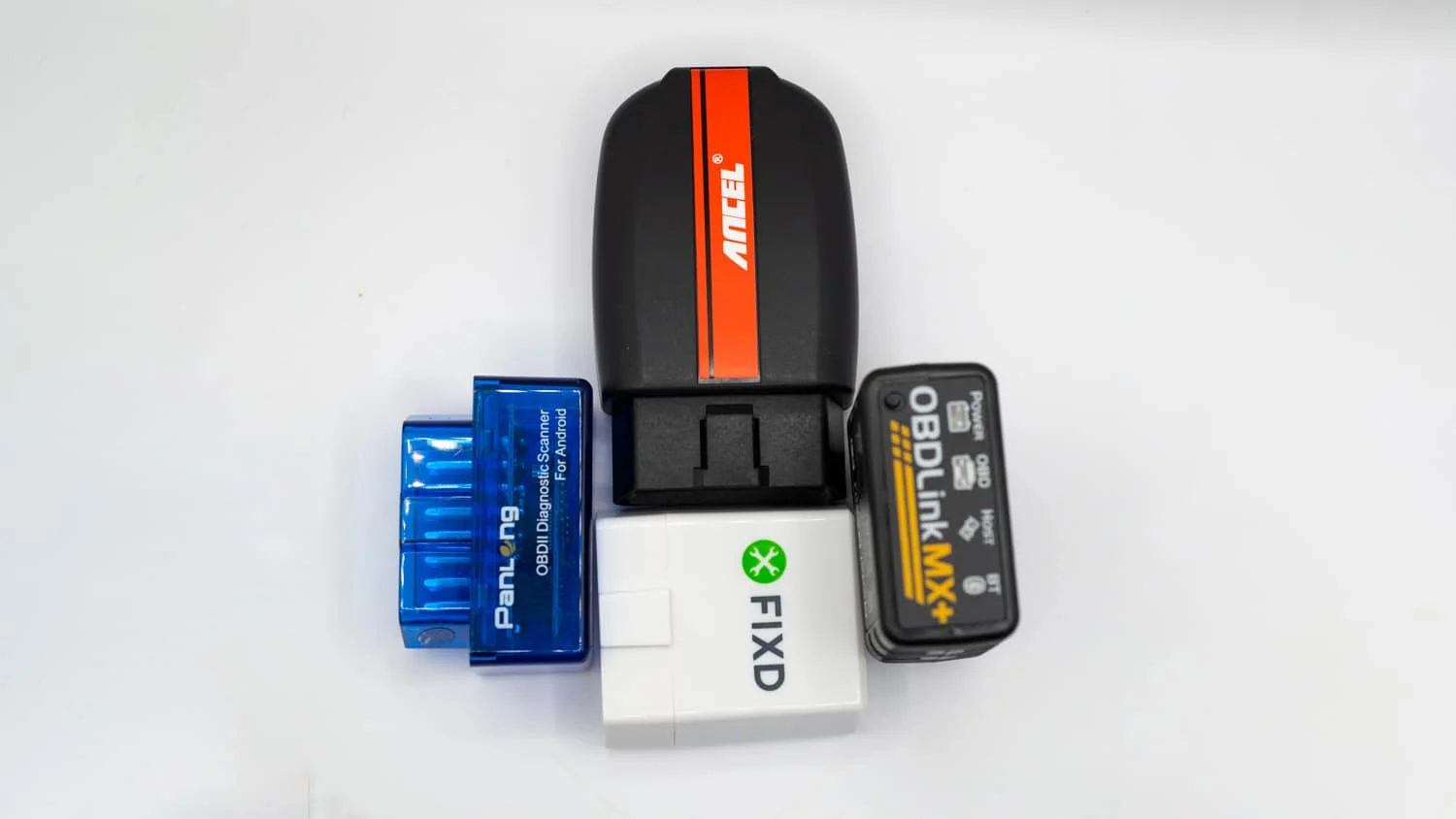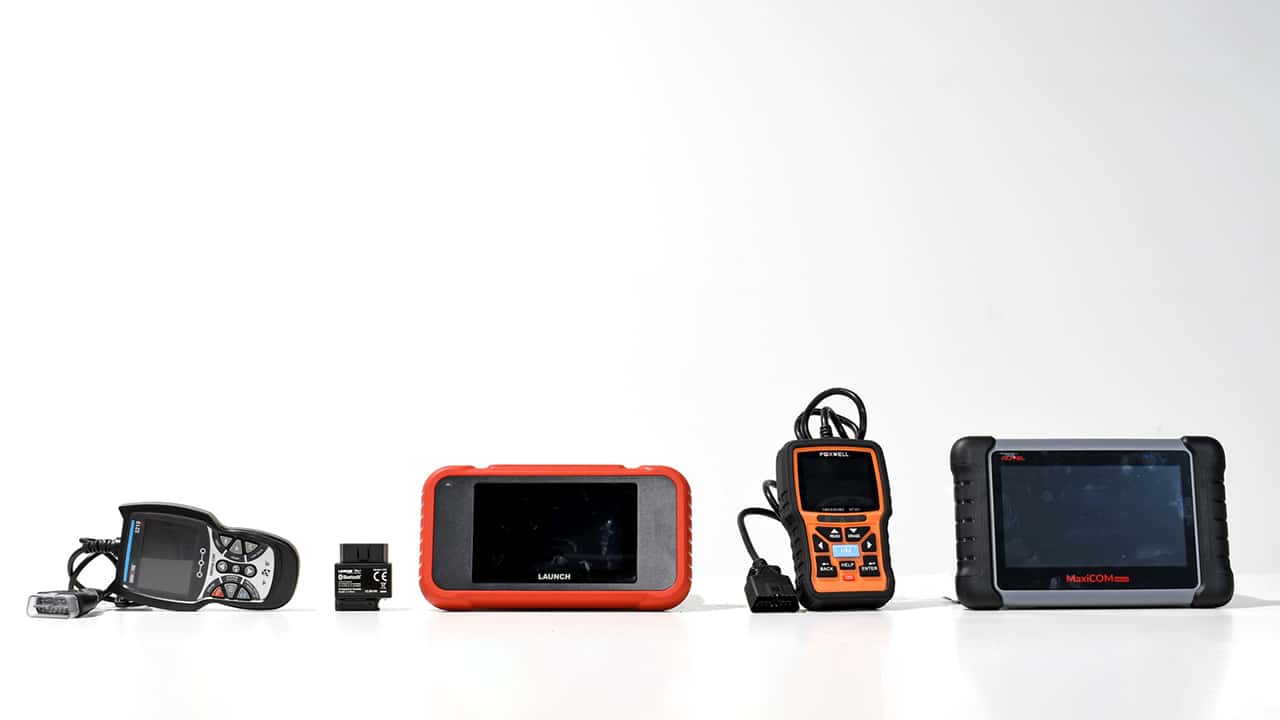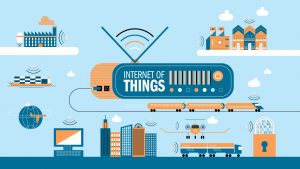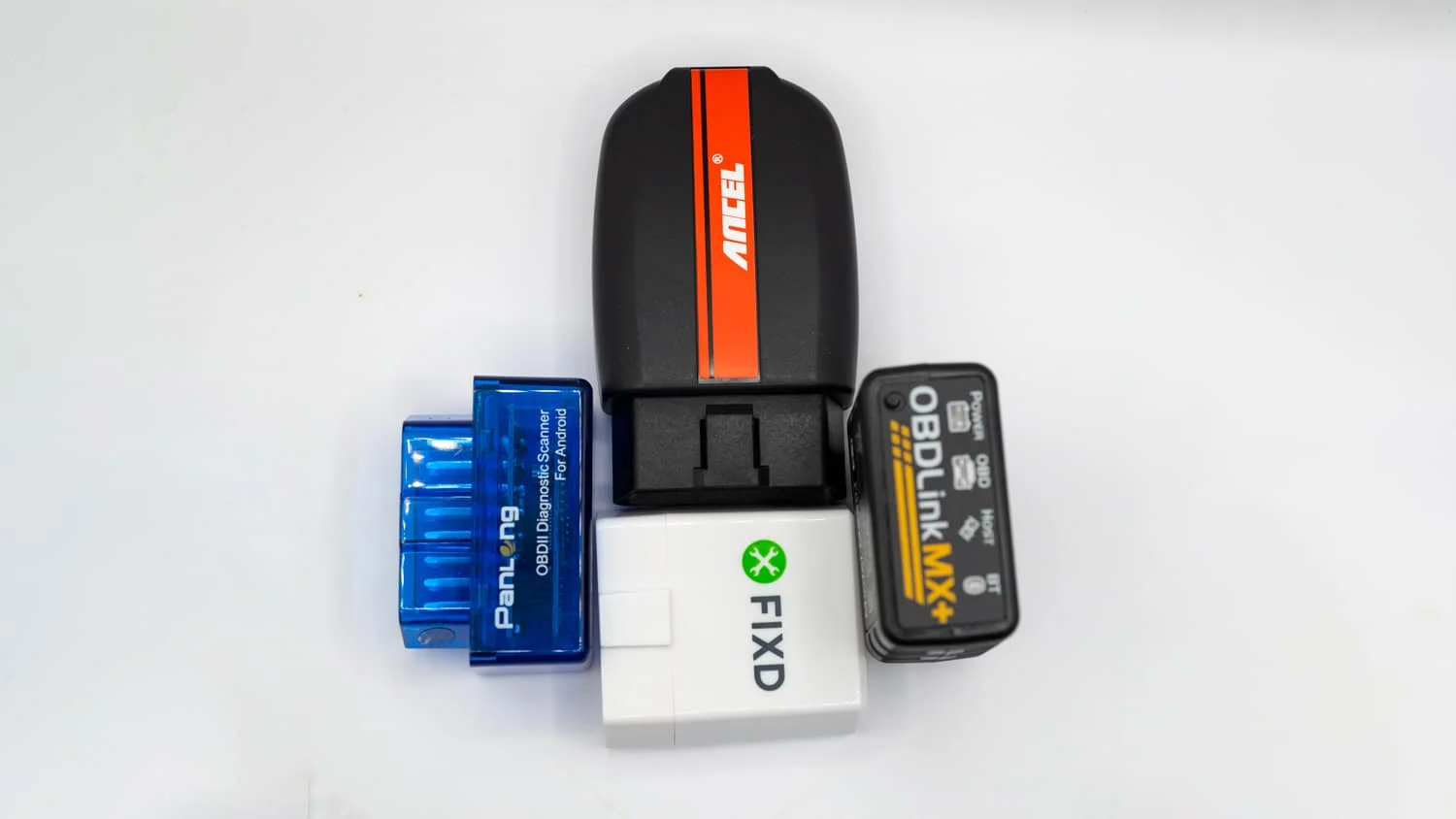Introduction
Welcome to the world of IoT engineering! In this era of technological advancements, the Internet of Things (IoT) has emerged as a revolutionary concept that connects everyday devices to the internet, enabling them to communicate and share data. As the field of IoT continues to expand, the demand for skilled IoT engineers is on the rise.
IoT engineers play a crucial role in designing, developing, and deploying IoT solutions that have the potential to transform industries and improve the way we live and work. Their expertise lies in integrating hardware, software, and networking technologies to create intelligent systems that can collect, analyze, and share data in real-time.
But what exactly does it take to become an IoT engineer? What are the key skills, educational requirements, and tools used in this field? What career prospects and challenges can one expect? In this article, we will delve into the world of IoT engineering, exploring the answers to these questions and shedding light on the exciting opportunities that await IoT engineers.
Before we dive into the specifics, it’s important to understand that IoT engineering is a multidisciplinary field that combines various domains, including electronics, computer science, data analytics, and communication systems. This unique blend of skills allows IoT engineers to tackle complex problems and design innovative solutions that bridge the physical and digital worlds.
So, whether you’re considering a career in IoT engineering or simply curious about this fascinating field, read on to discover the ins and outs of being an IoT engineer.
Definition of IoT Engineer
An IoT engineer is a professional who specializes in designing, developing, and implementing IoT solutions. They possess a deep understanding of the various components and technologies that constitute the Internet of Things, including sensors, actuators, embedded systems, cloud computing, and networking protocols.
The role of an IoT engineer is to create intelligent systems that can collect, process, and transmit data between devices, enabling seamless communication and automation. They are responsible for integrating hardware and software components to create interconnected systems that can be controlled remotely or operate autonomously.
IoT engineers are adept at working with a wide range of technologies, such as microcontrollers, wireless communication protocols, cloud platforms, and data analytics tools. They have a solid understanding of programming languages like C, C++, Java, and Python, which allows them to develop firmware and software applications for IoT devices.
One of the key responsibilities of an IoT engineer is to ensure the security and privacy of IoT systems. With the increasing number of connected devices, the potential for cybersecurity threats is also on the rise. IoT engineers implement robust security measures, such as authentication protocols, encryption techniques, and access controls, to safeguard sensitive data and prevent unauthorized access.
Furthermore, IoT engineers are involved in the entire lifecycle of an IoT project, from conceptualization and design to deployment and maintenance. They collaborate with cross-functional teams, including software developers, data scientists, and hardware engineers, to create end-to-end solutions that meet the specific requirements of clients or organizations.
Overall, an IoT engineer plays a critical role in shaping the future of technology and driving innovation in various industries. They possess a diverse skill set, combining technical expertise with problem-solving abilities, creative thinking, and effective communication skills.
Now that we have defined what an IoT engineer is, let’s explore the key skills required to excel in this field.
Key Skills of an IoT Engineer
Being an IoT engineer requires a unique blend of technical and interpersonal skills. Let’s take a look at the key skills that are essential for success in this field:
- Programming and Software Development: A strong foundation in programming languages such as C, C++, Java, and Python is crucial for an IoT engineer. They should be proficient in developing firmware and software applications for IoT devices, as well as be familiar with IoT-specific frameworks and platforms.
- Hardware and Electronics: IoT engineers should have a solid understanding of electronic components, circuits, and hardware prototyping. They should be skilled in designing and implementing IoT hardware devices, integrating sensors, actuators, and communication modules.
- Networking and Communication: Knowledge of networking protocols and communication technologies is essential for IoT engineers. They should be familiar with protocols such as MQTT, CoAP, and HTTP, as well as wireless technologies like Bluetooth, Wi-Fi, and Zigbee.
- Data Analytics and Visualization: IoT engineers should have a grasp of data analytics techniques, including data collection, storage, and analysis. They should also be proficient in visualizing and interpreting data using tools like Tableau or Python libraries like Matplotlib.
- Cybersecurity: With the increasing concern for IoT security, IoT engineers should possess knowledge of cybersecurity principles and practices. They should implement secure communication protocols, encryption techniques, and methods to mitigate the risks associated with IoT devices.
- Problem-solving and Troubleshooting: IoT engineers need strong problem-solving skills to tackle the challenges that arise during the development and deployment of IoT projects. They should be able to identify and resolve both hardware and software issues quickly and efficiently.
- Collaboration and Communication: Effective communication and collaboration are essential for IoT engineers who often work in multidisciplinary teams. They should be able to communicate technical concepts to non-technical stakeholders and work collaboratively to achieve project objectives.
These are just a few of the key skills that an IoT engineer should possess. It’s important to note that the field of IoT is constantly evolving, so continuous learning and staying updated with the latest advancements is crucial for long-term success.
Education and Training for IoT Engineers
To embark on a career as an IoT engineer, it is essential to acquire the necessary education and training. While there is no specific degree dedicated solely to IoT engineering, there are several educational paths that can lead to a successful career in this field.
Many IoT engineers have a background in electrical or electronic engineering, computer science, or a related field. A bachelor’s degree in one of these disciplines provides a solid foundation in fundamental concepts and principles that are relevant to IoT engineering.
Throughout their education, aspiring IoT engineers can focus on courses that cover topics such as embedded systems, computer networks, software development, and data analytics. These courses help develop the technical skills required to design and build IoT systems.
However, formal education is not the only pathway into IoT engineering. With the rapid pace of technological advancements, many professionals transition into the field through self-study and practical experience. Online courses, boot camps, and industry certifications can provide valuable knowledge and hands-on training in IoT technologies.
Moreover, staying updated with the latest trends and advancements is crucial for IoT engineers. Attending workshops, conferences, and industry events can help professionals expand their knowledge and network with like-minded individuals.
While education lays the foundation, practical experience is equally important for IoT engineers. Internships, co-op programs, or entry-level positions allow individuals to apply their knowledge in real-world scenarios and gain hands-on experience with IoT technologies and projects.
Furthermore, IoT engineers should possess a lifelong learning mindset. As technology continues to evolve, it is essential to keep up with the latest developments, take additional courses or certifications, and explore new tools and technologies.
In summary, pursuing a formal education in disciplines such as electrical engineering or computer science, along with practical experience and continuous learning, can equip individuals with the necessary skills and knowledge to thrive as IoT engineers in this ever-evolving field.
Roles and Responsibilities of an IoT Engineer
IoT engineers play a crucial role in the design, development, and implementation of IoT solutions. They are responsible for a wide range of tasks throughout the entire lifecycle of an IoT project. Here are some of the key roles and responsibilities of an IoT engineer:
- System Design: IoT engineers are involved in the overall architecture and system design of IoT projects. They analyze the requirements and objectives of the project, identify the necessary hardware and software components, and develop a plan to integrate them effectively.
- Hardware Development: IoT engineers are responsible for the development and integration of hardware components in IoT devices. They select the appropriate sensors, actuators, and communication modules, design circuitry, and ensure compatibility and efficiency in hardware implementations.
- Software Development: IoT engineers develop the firmware and software applications that control and manage the functionality of IoT devices and systems. They write code, debug and test software components, and ensure seamless communication between hardware and software.
- Data Management: An important aspect of IoT engineering is the management and processing of data. IoT engineers design and implement data collection mechanisms, establish secure data storage solutions, and develop algorithms for data analysis and interpretation.
- Networking and Connectivity: IoT engineers are responsible for establishing reliable connectivity between IoT devices and the internet or other networks. They configure networking protocols, set up wireless communication, and ensure seamless data transfer and communication between devices.
- Integration and Testing: IoT engineers integrate and test all components of an IoT system to ensure functionality, reliability, and security. They conduct rigorous testing, identify and resolve any issues, and ensure that the system meets the defined specifications and requirements.
- Security and Privacy: As IoT devices and systems are vulnerable to cybersecurity threats, IoT engineers implement security measures to protect data and ensure user privacy. They incorporate encryption techniques, authentication protocols, and access controls to safeguard sensitive information.
- Collaboration and Communication: IoT engineers work closely with cross-functional teams, including software developers, data scientists, and hardware engineers. They collaborate effectively, communicate technical concepts to non-technical stakeholders, and ensure smooth coordination throughout the project lifecycle.
These are just a few examples of the roles and responsibilities handled by IoT engineers. The specific tasks may vary depending on the project and organization, but overall, IoT engineers play a vital role in bringing IoT solutions to life and ensuring their successful implementation.
Tools and Technologies Used by IoT Engineers
IoT engineers utilize a variety of tools and technologies to design, develop, and deploy IoT solutions. These tools and technologies are essential for implementing the interconnected systems that make up the Internet of Things. Let’s explore some of the key tools and technologies commonly used by IoT engineers:
- Hardware Development Kits (HDKs): HDKs are hardware platforms that provide a starting point for building IoT devices. They typically include microcontrollers, sensors, actuators, and other necessary components. Popular HDKs include Arduino, Raspberry Pi, and ESP32.
- Integrated Development Environments (IDEs): IDEs are software applications that provide a comprehensive set of tools for writing, compiling, and debugging code. IoT engineers commonly use IDEs such as Arduino IDE, Microsoft Visual Studio, or Eclipse for developing firmware and software for IoT devices.
- Prototyping Tools: Prototyping tools like breadboards, soldering irons, and 3D printers enable IoT engineers to quickly build and test hardware prototypes. These tools aid in the physical realization of IoT devices and allow for rapid iteration and refinement.
- Wireless Communication Protocols: IoT devices often rely on wireless communication for seamless connectivity. Common wireless protocols used by IoT engineers include Wi-Fi, Bluetooth Low Energy (BLE), Zigbee, and LoRaWAN. Each protocol has its own advantages and is chosen based on the specific requirements of the IoT project.
- Data Analytics Tools: IoT generates vast amounts of data, and IoT engineers need tools to effectively analyze and derive insights from this data. Data analytics tools like Apache Kafka, Apache Spark, and Elasticsearch are commonly used for real-time data processing, visualization, and advanced analytics.
- Cloud Platforms: Cloud platforms like Amazon Web Services (AWS), Microsoft Azure, and Google Cloud Platform (GCP) provide scalable and secure infrastructure for IoT applications. IoT engineers leverage these platforms for data storage, device management, and cloud-based analytics.
- Security Frameworks: With the increasing concern for IoT security, IoT engineers rely on security frameworks and protocols to protect IoT devices and data. Examples of security frameworks commonly used by IoT engineers include Transport Layer Security (TLS), Lightweight M2M (LwM2M), and Secure Sockets Layer (SSL).
- Simulation Tools: Simulation tools allow IoT engineers to simulate and test IoT systems before physical deployment. These tools, such as MATLAB, Cisco Packet Tracer, or Simulink, help validate system performance, optimize configurations, and identify potential issues.
These are just a few examples of the tools and technologies that IoT engineers utilize in their work. As the field of IoT continues to evolve, new tools and technologies are constantly being developed, providing even more opportunities for innovation and seamless integration in IoT projects.
Career Prospects and Job Opportunities for IoT Engineers
The field of IoT engineering offers a promising career path and a wide range of job opportunities. As more industries and sectors adopt IoT technologies, the demand for skilled IoT engineers continues to grow. Let’s explore the career prospects and job opportunities available for IoT engineers:
Increased Industry Adoption: The Internet of Things is transforming various industries, including healthcare, manufacturing, transportation, agriculture, and smart cities. This widespread adoption creates a multitude of opportunities for IoT engineers to work on innovative projects and contribute to the development of connected solutions in these sectors.
IoT Product Development: Many companies are investing in the research and development of IoT products. As an IoT engineer, you can work on developing next-generation smart devices, wearables, home automation systems, and other IoT-enabled products that enhance the way people live and interact with technology.
Data Analytics and IoT Security: With the vast amounts of data generated by IoT devices, there is a growing need for IoT engineers with expertise in data analytics and security. IoT engineers can specialize in analyzing IoT data to derive valuable insights for businesses or focusing on ensuring the security and privacy of IoT systems.
Consulting and Solution Architecture: IoT engineers with a strong understanding of IoT technologies and applications can work as consultants or solution architects. They can assist companies in designing and implementing custom IoT solutions tailored to their specific needs, providing technical expertise and guidance throughout the project lifecycle.
Research and Development: IoT engineers can contribute to the advancements in IoT technologies by working in research and development organizations. They can be part of teams that explore emerging IoT trends, develop new protocols, or create innovative solutions to address complex challenges in the field.
Entrepreneurship and Startups: The IoT field offers opportunities for entrepreneurial individuals to build startups focused on developing IoT products or providing IoT-related services. As an IoT engineer, you can take on the challenge of starting your own venture and contribute to the growing ecosystem of IoT startups.
Industry-specific Roles: Various industries have specific IoT engineering roles. For example, in the automotive industry, there is a demand for IoT engineers specializing in connected car technologies, while in the agriculture sector, IoT engineers can work on developing smart farming solutions. These industry-specific roles provide unique opportunities to apply IoT technologies in specific domains.
As the Internet of Things continues to evolve and permeate various sectors of society, the demand for skilled IoT engineers will only continue to grow. This presents a promising career path for individuals with a passion for technology, problem-solving, and innovation.
Challenges Faced by IoT Engineers
While the field of IoT engineering offers exciting opportunities, IoT engineers also face several challenges in their work. Let’s explore some of the common challenges faced by IoT engineers:
- Complexity: Developing IoT solutions involves integrating diverse technologies and components, including hardware, software, and networking. IoT engineers must navigate the complexity of these interconnected systems, ensuring seamless communication and interoperability between devices.
- Scalability: IoT deployments often involve a large number of devices and generate massive amounts of data. IoT engineers need to design solutions that can scale efficiently to handle the growing demands of IoT systems, including data storage, processing, and network bandwidth requirements.
- Security and Privacy: With the increasing number of connected devices, ensuring the security and privacy of IoT systems is a significant challenge. IoT engineers must implement robust security measures, including encryption, authentication, and access controls, to safeguard against cyber threats and protect sensitive data.
- Compatibility: IoT devices and systems come from various manufacturers and may use different communication protocols and standards. IoT engineers need to ensure compatibility and seamless integration between devices from different vendors, overcoming interoperability challenges.
- Reliability and Fault Tolerance: IoT systems often operate in demanding environments, such as industrial settings or remote locations. IoT engineers must design systems that are robust, reliable, and capable of handling failures or disruptions without compromising the functionality of the entire ecosystem.
- Data Management and Analytics: IoT generates vast amounts of data that need to be efficiently managed and analyzed. IoT engineers face challenges in handling data storage, processing, and analysis, as well as extracting meaningful insights from the massive volumes of data collected by IoT devices.
- Energy Efficiency: Many IoT devices operate on limited power sources, such as batteries or energy harvesting mechanisms. IoT engineers need to optimize power consumption, design energy-efficient solutions, and implement sleep modes or power-saving mechanisms to prolong device battery life.
- Regulatory and Legal Compliance: IoT engineers must navigate the complex landscape of legal and regulatory requirements related to data privacy, security, and ethical considerations. They need to ensure that IoT solutions comply with relevant industry standards and regulations to protect user privacy and mitigate legal risks.
- Continuing Education and Skills Development: As the field of IoT evolves rapidly, IoT engineers need to continuously update their skills and stay up-to-date with the latest advancements, emerging technologies, and industry trends. Keeping pace with this dynamic field requires a commitment to lifelong learning and professional development.
Overcoming these challenges requires a combination of technical skills, innovative thinking, and adaptability. As IoT continues to advance, IoT engineers play a crucial role in addressing these challenges to create secure, efficient, and effective IoT solutions.
Conclusion
The field of IoT engineering presents a world of possibilities and opportunities for professionals seeking to make a difference in the rapidly evolving technological landscape. As we have explored in this article, IoT engineers play a vital role in designing, developing, and implementing IoT solutions that have the potential to transform industries and improve our daily lives.
From understanding the definition and responsibilities of an IoT engineer to exploring the essential skills, education, and tools required, we have gained insights into what it takes to excel in this field. IoT engineers must possess a diverse skill set, including programming, hardware development, networking, data analytics, and cybersecurity, among others.
While IoT engineering offers promising career prospects, there are challenges to overcome, including complexity, security concerns, scalability, and compatibility issues. However, with continuous learning, innovation, and problem-solving skills, IoT engineers can navigate and address these challenges to create robust and reliable IoT solutions.
As industries across the globe continue to adopt IoT technologies, the demand for skilled IoT engineers is expected to grow. Whether working on product development, consulting, research and development, or entrepreneurship, IoT engineers have the opportunity to contribute to the advancement of this field and shape the future of technology.
In conclusion, the field of IoT engineering offers immense potential for those passionate about technology, creativity, and problem-solving. By acquiring the necessary skills, staying updated with the latest advancements, and embracing the challenges, IoT engineers can forge successful careers and make significant contributions to the transformative power of the Internet of Things.
























